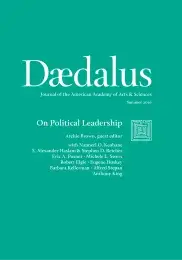Varieties of Presidentialism & of Leadership Outcomes
This essay explores aspects of the relationship between political leadership and institutional power, comparing the different forms that presidential institutions have taken across the world and identifying the relationship between these structures and social, political, and economic outcomes. Semipresidential systems are distinguished from presidential systems, and within the former, a distinction is made between president-parliamentary and premier-presidential regimes. Some scholars have argued that presidential regimes are less conducive to the successful transition from authoritarian rule to democracy than are parliamentary governments, but the empirical evidence is contradictory. Recent research has, however, drawn attention to finer distinctions within the various broad categories of presidentialism, focusing on more precise institutional arrangements and trying to identify which are more, and which are less, consonant with the consolidation of democracy.
